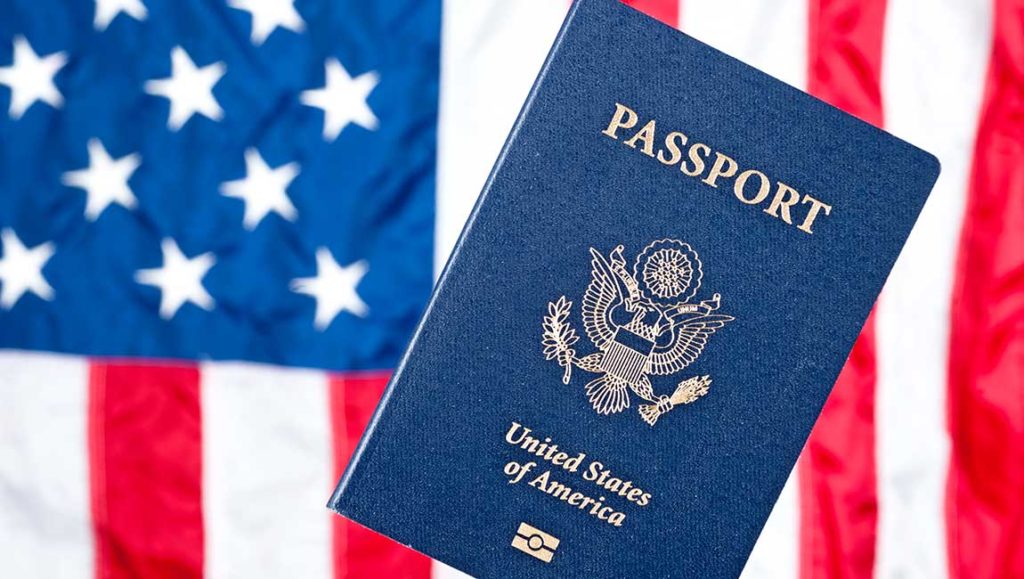Immigration Consequences of Drug Offenses
Michigan Criminal Defense Lawyers with experience successfully defending clients and helping them avoid potential immigration consequences of drug offenses and other criminal convictions.

Drug Crimes have Severe and Unforgiving Immigration Consequences
Aside from stiff prison sentences, federal and state drug offenses have some of the most severe and unforgiving immigration consequences, which can include deportation (sometimes mandatory), mandatory detention, ineligibility to get lawful residency, loss of asylum or ability to get asylum, and temporary or permanent bar to citizenship. Under the federal immigration statute, the Immigration and Nationality Act creates two categories of offenses that make a person either deportable, inadmissible, or both.
Highly experienced criminal defense attorneys give their clients the best chances of avoiding these consequences or, at least, give their clients a fighting chance. Lawful permanent residents (LPR) are primarily concerned about preventing deportation and avoiding negative contact with U.S. Immigration and Customs Enforcement (ICE).
Deportability for a Controlled Substance Conviction
Generally, deportability based upon a drug conviction requires a non-citizen who, after admission, is convicted of a controlled substance offense that is not a single offense of possession of personal use of 30 grams or less of marijuana. A controlled substance is a drug or other substance, or immediate precursor, included in schedule I, II, III, IV, or V of the federal Controlled Substances Act.
The following are deportable controlled substance offenses:
- Possession of a Controlled Substance
- Marijuana Possession (subject to the 30 g. personal use exception)
Note: LPR may still be inadmissible when returning from a trip abroad - Possession of Narcotic Paraphernalia (subject to the 30 g. personal use exception)
- Gratuitous Distribution of a Small Amount of Marijuana
The following are mandatory deportation controlled substance offenses:
- Drug Trafficking Crimes
- Federal Felony Drug Crime
- State Drug Convicting that Federal Law Punishes as a Felony
- Possession with Intent to Sell or Deliver a Controlled Substance
- Sale or Distribution of a Controlled Substance
- Manufacture of a Controlled Substance
- Distribution of a Controlled Substance
Defenses to Drug Deportability
A Michigan criminal defense lawyer’s job is to attempt to help a client avoid a conviction and the immigration consequences of a drug offense. There are a multitude of possible defenses, but some of them are as follows:
- Avoid the conviction!
- Specify a substance not defined as a controlled substance under federal law.
- Specify marijuana under 30 grams.
- If a controlled substance offense is unavoidable, the defense lawyer must attempt to avoid having the conviction be an “aggravated felony,” so deportation is not mandatory.

Padilla v. Kentucky
In the seminal case of Padilla v. Kentucky, the United States Supreme Court held that a defense lawyer has a duty to advise their client of immigration-related collateral consequences of a conviction, including the possibility of deportation and inadmissibility. If an attorney fails to advise their client of advice regarding critically important immigration consequences, they’ve provided ineffective assistance of counsel.
Immigration Consequences for a Lawful Permanent Resident
Lawful permanent residents, also known as “green card” holders, are non-citizens who can lawfully live permanently within the United States. The immigration status of a lawful permanent resident is not the same as a United States citizen. While lawful permanent residents have strong protections, they can lose their legal status upon a criminal conviction. “Permanent” does not mean “permanent” in immigration law and immigration consequences are still possible. Lawful permanent residents enjoy strong protections; however, a criminal conviction can trigger a change in status. Examples of crimes that can make a green card holder deportable (grounds for removability) include:
- an aggravated felony (including drug trafficking).
- a crime involving moral turpitude (CIMT) within five years of receiving a green card.
- two deportable crimes at any time.
- a sex crime.
- a drug crime (except a single marijuana offense involving less than 30 grams).
- domestic violence.
- a firearms offense.
- a fraud-related offense.
- a conspiracy or attempt to commit any of the above.
Convictions Resulting In Inadmissibility
The list of offenses that can disqualify an applicant from applying for legal status is more expansive than those that result in deportability. Offenses resulting in inadmissibility prevent non-US citizens from obtaining visas, nonimmigrant legal status, or lawful permanent residence. These can also result in an undocumented individual being placed in removal proceedings. A simple marijuana possession allegation (for less than 30 grams) can result in inadmissibility. Notably, inadmissibility can be triggered by conduct or by a “reason to believe” there was a criminal offense, even if there was no arrest, ticket, charge, conviction, or sentence.
An inadmissibility ground could attach to a lawful permanent resident if an immigration officer has reason to believe that the individual engaged in drug trafficking activities, a crime involving moral turpitude, or other serious criminal behavior. This is why it is not advisable for a lawful permanent resident to leave the United States following an arrest or if they are under investigation.

Naturalization
After meeting a series of qualifications, a lawful permanent resident can apply for United States citizenship. An essential requirement is that the applicant demonstrate good moral character during the five years preceding the application (three years for the spouse of a U.S. citizen). Many criminal convictions, including controlled substance crimes, make a permanent resident intelligible for naturalization. Some drug convictions are considered so severe that they serve as indefinite bars to naturalization.
Defense Strategies
If it is unlikely that the defense can fight for an acquittal or dismissal of the charges, the best strategy might be plea bargaining. A defendant must be cautious, and their lawyer must be knowledgeable about formulating a plea bargain strategy without immigration-related consequences (or with as few consequences as possible). For example, a savvy lawyer will seek to resolve a charge so that the defendant does not admit to and is not convicted of a drug trafficking crime, an aggravated felony, a federally defined controlled substance offense, or a crime involving moral turpitude. If the government has strong evidence of criminality, it will take an influential, experienced, and effective criminal defense attorney to persuade the prosecutor to agree to a favorable plea bargain.

Experience Helping Clients Avoid Immigration Consequences of Drug Offenses
The Defense Team with LEWIS & DICKSTEIN, P.L.L.C. has decades of experience defending misdemeanor and felony controlled substance offenses in State and Federal courts throughout Michigan. We have an unparalleled track record of successfully helping clients through innovative, aggressive, and highly effective defense strategies and techniques. We are your best home when the stakes are high, and there is no room for errors and false promises! If you need to avoid immigration consequences of drug offenses or any other crime, don’t trust your fate to the lowest bidder, higher a fighter!
Call us today at (248) 263-6800 for a free consultation or complete an online Request for Assistance Form. We will contact you promptly and find a way to help you.














